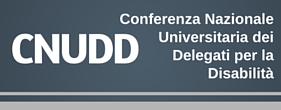Manifesto di Udine - G7 UniversitĂ
- Published in CRUI NEWS
- font size decrease font size increase font size
The G7 University has collectively suggested the following recommendations and actions:
1. To promote global citizenship, we propose that universities commit themselves to research and teaching on global citizenship as an interdisciplinary field in its own right. Core values that universities contribute to the formation of global citizenship are democracy, inclusion, and the use of scientific method to cope with social issues without compromise with post-truth approaches.
In order to effectively and consistently advocate for global citizenship, universities need to address gender differences as well as the persistence of gender discrimination and stereotypes.
Universities would establish research units and chairs, and offer relevant courses to students from all degree programmes, from medicine to fine arts. Universities should implement gender-responsive budget initiatives and facilitate the access of girls to STEM higher education programmes. Furthermore universities should simplify the recognition of academic and research while governments should facilitate the incoming flows of student and scholars from thso ecountries where academic freedom is not guaranteed.
Finally universities should commit themselves to deal with the raising diversification of the cultural contexts of their students.
2. Education is crucial to promote economic, social and environmental sustainability. In order to make it effective, we recommend promoting trans-disciplinary collaborations, also involving external stakeholders; increasing, in our programmes, the weight of a social perspective and of critical thinking, leveraging ICT and MOOCs as collaborative platforms for wider participation and inclusion; aligning career incentives and funding schemes with the implementation of Agenda 2030.
A proposed specific action is to create a massive educational initiative on Sustainable Development for teachers and professors.
3. We believe that Tertiary Education is an essential ingredient to promote democratic participation in social life and social mobility. HE institutions should favour access, retention and success of a higher number of students, independently of their degree of performance. entails offering degrees which take into account the particular characteristics of different target students in terms of age, gender, previous education, background and income. The concern for quality education should not be turned into an elitist obsession. Flexibility of curricula, a stronger commitment to public engagement, and openness to society at large, and dialogue with non-academic stakeholders could play a key role in this direction.
Hence, we suggest that international organisations and national governments encourage, fund and support universities’ activities to establish partnerships with HE institutions in developing countries. Such partnerships may rely on innovative formats autonomously tailored on the specific needs of the partner universities within the framework of international cooperation initiatives.
4. To promote the role of HE in fostering future social and economic development, both the number and the quality of graduates matter. A large quantity of graduates is a necessary condition to maintain competitiveness; in turn, higher quality can be obtained by promoting international mobility, offering students, the ultimate stakeholder of the HE system, a larger set of opportunities.
Universities should support the expansion of Erasmus-like mobility experiences of students and faculty around the globe; Member States should advocate in favour of the competence and coordination of this field by the European Union.
- The Udine G7 University Manifesto
- Il Manifesto di Udine G7 University
Gli interventi di indirizzo del G7 University (nr. 1 -10)
*******
11. La presentazione Introduttiva al G7 University
12. La Rassegna Stampa - G7 University
13. Le interviste ANSA - G7 University
14. Il Manifesto di Udine - G7 University
15. Il Manifesto di Udine - G7 University – Versione estesa
The G7 University Institutional Greetings (nr. 1 -10)
1. Institutional Greetings by Alberto De Toni (Secretary General CRUI) on 29th June 2017
2. Institutional Greetings by Flavio Pressacco (Vice President, Friuli Foundation) on 29th June 2017
3. Institutional Greetings by Giovanni Da Pozzo (President, Chamber of Commerce of Udine) on 29th June 2017
4. Institutional Greetings by Furio Honsell (Mayor, City of Udine) on 29th June 2017
5. Institutional Greetings by Debora Serracchiani (President, Autonomous Region Friuli Venezia Giulia) on 29th June 2017
6. Institutional Greetings by Thompson-Flores (Director, UNESCO - Regional Bureau for Science and Culture in Europe) on 29th June 2017
7. Institutional Greetings by Valeria Fedeli (Italian Minister of Education, University and Research) on 29th June 2017
8. Welcome Address by Rolf Tarrach (President, European University Association) on 30.06.2017
9. Welcome Address by Stephen Freedman (U.S.A. Board Member, International Association of Universities) on 30th June 2017
10. Goodbye Address by Gaetano Manfredi (President, The Conference of Italian University Vice-Chancellors) on 30th June 2017
• The G7 University Keynote Address (nr. 11)
• The G7 University press release (nr. 12)
• The G7 University interviews by ANSA (nr. 13)
**********
AGENDA
Concept | Il lancio
List of Organizations
The G7 University has collectively suggested the following recommendations and actions






